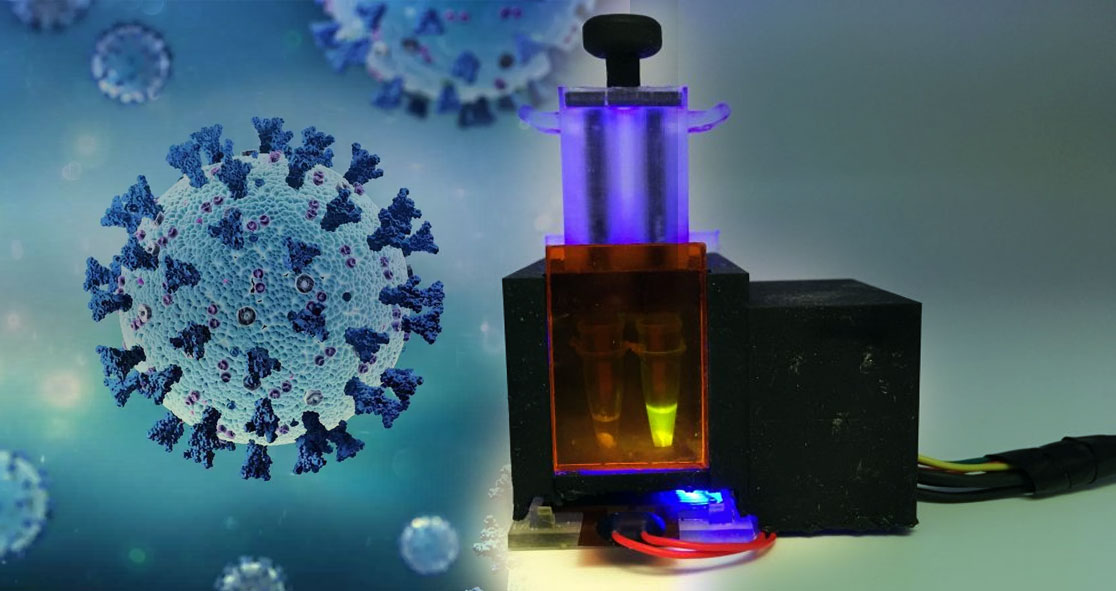MIT and Harvard University engineers have developed a small device that can detect the coronavirus from a saliva sample in just about an hour, according to Science Daily.
The engineers have also shown that the device, which is as accurate as the PCR test, can detect specific viral mutations associated with some of the variants.
More importantly, the results result can be obtained within an hour, making it easier to track different strains of the coronavirus.
Senior author James Collins of MIT said, “We demonstrated that our platform can be programmed to detect new variants that emerge, and that we could repurpose it quite quickly. In this study, we targeted the U.K., South African, and Brazilian variants, but you could readily adapt the diagnostic platform to address the Delta variant and other ones that are emerging.”
Lead author Xiao Tan said, “Our goal was to create an entirely self-contained diagnostic that requires no other equipment. Essentially the patient spits into this device, and then you push down a plunger and you get an answer an hour later.”
The engineers designed the device, which they call minimally instrumented SHERLOCK (miSHERLOCK). It has four modules that each look for a different target RNA sequence, per Science Daily. The original module contains RNA guide strands that detect any strain of coronavirus, while the other modules are specific to mutations linked to some of the variants, including the highly contagious Delta strain.
Another lead author Devora Najjar said, “If you want to do more of a broad epidemiological survey, you can design assays before a mutation of concern appears in a population, to monitor for potentially dangerous mutations in the spike protein.”
The authors first tested the device with human saliva mixed with synthetic coronavirus RNA sequences. And later they took about 50 samples from patients who had tested positive for COVID.
Upon analysis, they found that their device was as accurate as the PCR tests, which require throat and nasal swabs.
Interestingly, the device produces a fluorescent readout, which you can see with the naked eye. Also, the researchers designed a smartphone app that can read the results.
The engineers believe that their device could be produced at a cost as low as $2 to $3 per device, according to Science Daily.
Another lead author Helena de Puig said, “The ability to detect and track these variants is essential to effective public health, but unfortunately, variants are currently diagnosed only by nucleic acid sequencing at specialized epidemiological centers that are scarce even in resource-rich nations.” The article was published in Science Daily























